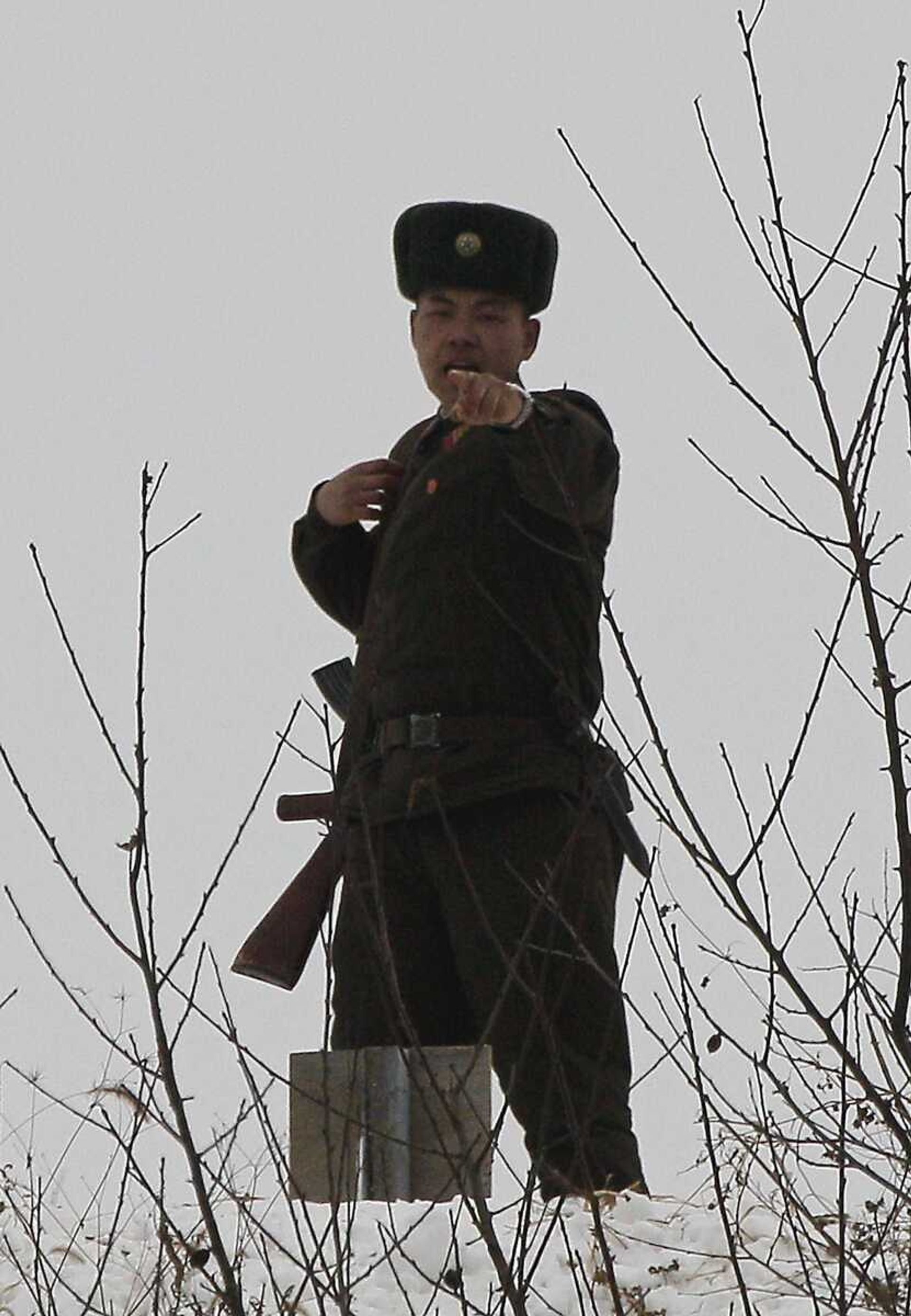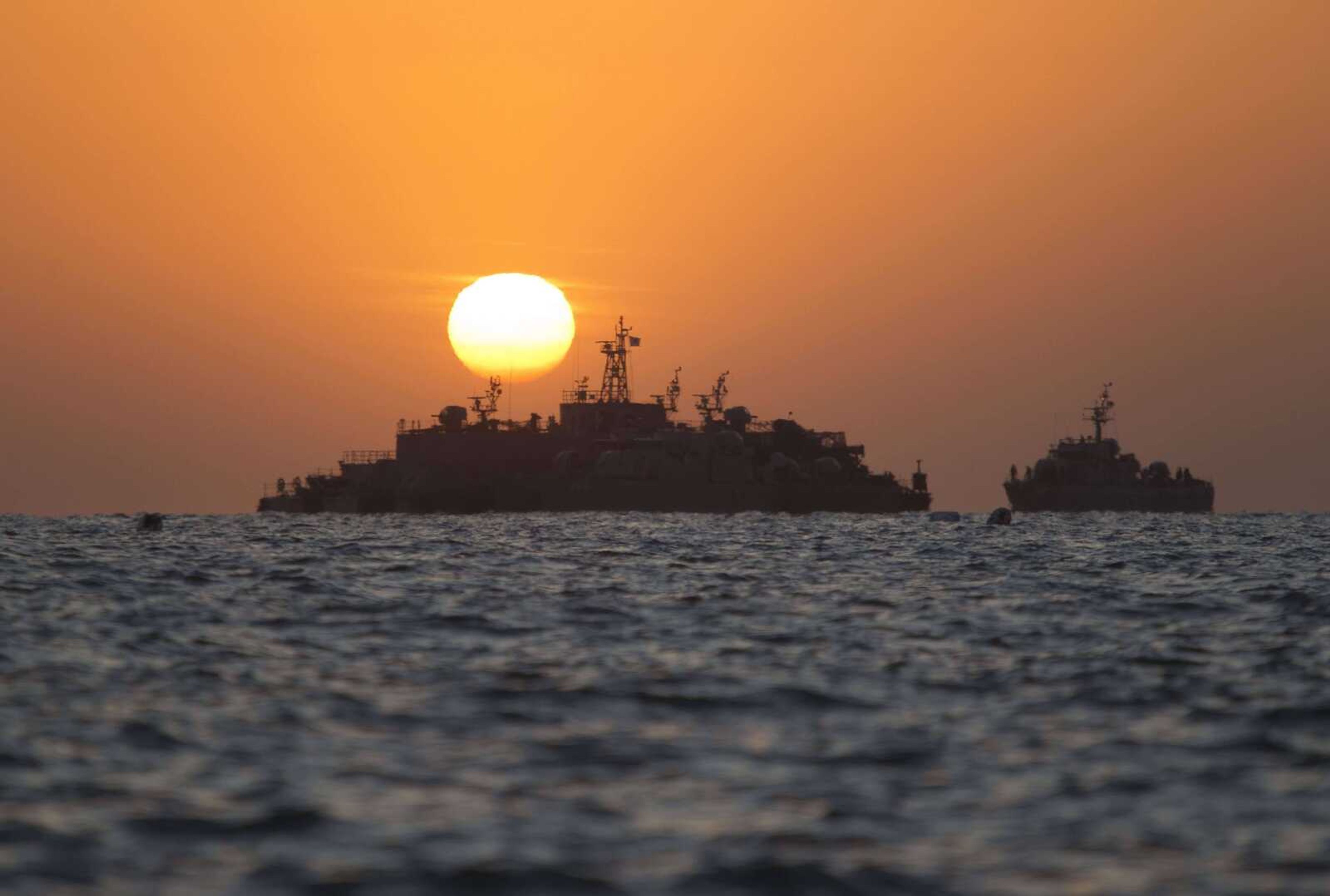U.S., S. Korea launch war games in Yellow Sea
YEONPYEONG ISLAND, South Korea -- A U.S. supercarrier and South Korean destroyer took up position in the tense Yellow Sea on Sunday for joint military exercises that were a united show of force just days after a deadly North Korean artillery attack...
YEONPYEONG ISLAND, South Korea -- A U.S. supercarrier and South Korean destroyer took up position in the tense Yellow Sea on Sunday for joint military exercises that were a united show of force just days after a deadly North Korean artillery attack.
As tensions escalated across the region, with North Korea threatening another "merciless" attack, China belatedly jumped into the fray. Beijing's top nuclear envoy, Wu Dawei, called for an emergency meeting in early December among regional powers involved in nuclear disarmament talks, including North Korea.
Seoul responded cautiously to the proposal from North Korea's staunch ally, saying it should be "reviewed very carefully" in light of North Korea's recent revelation of a new uranium-enrichment facility, even as protesters begged President Lee Myung-bak to find a way to resolve the tension and restore peace.
The troubled relations between the two Koreas, which fought a three-year war in the 1950s, have steadily deteriorated since Lee's conservative government took power in 2008 with a tough new policy toward nuclear-armed North Korea.
Eight months ago, a South Korean warship went down in the western waters, killing 46 sailors in the worst attack on the South Korean military since the Korean War. Then, on Tuesday, North Korean troops showered artillery on Yeonpyeong, a South Korean-held island that houses military bases as well as a civilian population of 1,300 -- an attack that marked a new level of hostility.

Two South Korean marines and two civilians were killed and 18 others wounded in the hailstorm of artillery that sent residents fleeing into bunkers and reduced homes on the island to charred rubble.
North Korea blamed the South for provoking the attack by holding artillery drills near the Koreas' maritime border, and has threatened to be "merciless" if the current war games -- set to last until Dec. 1 -- get too close to its territory.
As U.S. and South Korean ships, including the nuclear-powered USS George Washington, sailed into the waters off Korea's west coast Sunday, China began launching its diplomatic bid to calm tensions.
Washington and Seoul had been pressing China, North Korea's main ally and benefactor, to help defuse the situation amid fears of all-out war.
China, slow at first to react, has quickened its diplomatic intervention in recent days. Chinese state councilor Dai Bingguo made a last-minute visit to Seoul to confer with Lee.
Lee pressured China to contribute to peace in a "more objective, responsible" matter, and warned Sunday that Seoul would respond "strongly" to any further provocation, the presidential office said.
The strong words were Lee's first public comment in days. He was due to address the nation today amid calls from his people to take stronger action in dealing with the defiant North.
Appearing Sunday CNN's "State of the Union" Sunday, U.S. Sen. John McCain, the top Republican on the Senate Armed Services Committee, said China should rein in its neighbor.
"The key to this, obviously, is China," McCain said. "And, unfortunately, China is not behaving as a responsible world power. It cannot be in China's long-term interest to see a renewed conflict on the Korean peninsula."
North Korea, which cites the U.S. military presence in South Korea as a main reason behind its drive to build atomic weapons, routinely calls the joint exercises between the allies a rehearsal for war.
Washington, which keeps 28,500 troops in South Korea to protect the ally, insists the routine drills were planned before last Tuesday's attack.
The exercises will take place over four days, but no live-fire drills are planned, said Cmdr. Jeff Davis, spokesman for the 7th Fleet in Japan.
Along Mallipo Beach on the west coast, about 50 South Korean soldiers were laying down an aluminum road to prepare for an amphibious landing drill today.
North Korea expressed renewed outrage over the Yellow Sea drills.
The war games are a "pretext for aggression and ignite a war at any cost," the National Peace Committee of Korea said in a statement Sunday.
Hours earlier, the rattle of new artillery fire from North Korea sent residents, journalists, police and troops scrambling for cover on Yeonpyeong Island. None of the rounds landed on the island, military officials said, but the incident showed how tense the situation remains.
Saying they could not guarantee the journalists' safety, South Korea's Defense Ministry sent a ship to ferry them off the island but bad weather forced them to cancel the evacuation. About 380 people, including 28 islanders and 190 journalists, remained on Yeonpyeong on Sunday, officials said.
A similar burst of artillery fire Friday occurred just as the U.S. military's top commander in the region, Gen. Walter Sharp, was touring Yeonpyeong Island. No shells landed anywhere in South Korean territory.
Calls for tougher action made way Sunday for pleas for peace among about 150 South Koreans who turned out for a vigil Sunday evening in a Seoul plaza, huddling with candles in paper cups and chanting, "Give us peace!"
"It was very shocking," said Kang Hong-koo, 22, a student. "I'm here to appease the souls of the people who were killed in the North Korean attack. I hope the current tense situation is alleviated quickly."
Connect with the Southeast Missourian Newsroom:
For corrections to this story or other insights for the editor, click here. To submit a letter to the editor, click here. To learn about the Southeast Missourian’s AI Policy, click here.










